Country rankings that trust AI bosses than humans are announced

by
The result of “Awareness Survey on Artificial Intelligence (AI) and Workplace” by Oracle , a major business software company, and Future Workplace , a research company, was announced.
From Fear to Enthusiasm-ai-at-work-ebook.pdf
(PDF file) https://www.oracle.com/a/ocom/docs/applications/hcm/ai-at-work-ebook.pdf
New Study: 64% of People Trust a Robot More Than Their Manager
https://www.oracle.com/corporate/pressrelease/robots-at-work-101519.html
This is the second edition of AI at Work, an AI survey conducted by Oracle and Future Workplace, covering 8370 workers in 10 countries. In the previous survey (PDF file) conducted in 2018, 32% of the workers answered that they are using AI in the workplace in some way, but in the second survey conducted in 2019, 50% %, It has increased significantly.
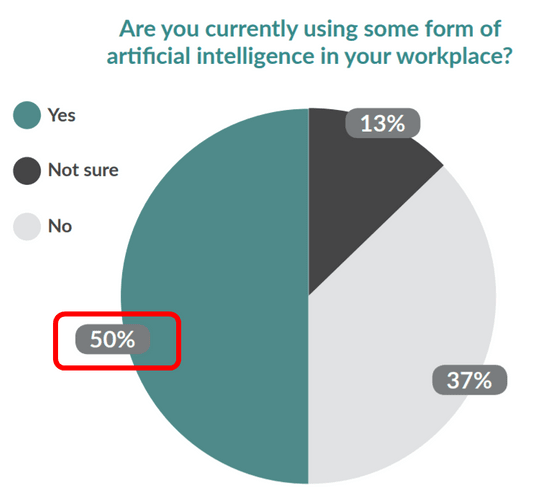
The graph below shows the country-specific results of using AI. India is at the top with 78%, followed by 77% in China and 62% in the United Arab Emirates (UAE). The adoption rate in Japan was only 29%, the lowest among the 10 countries surveyed.
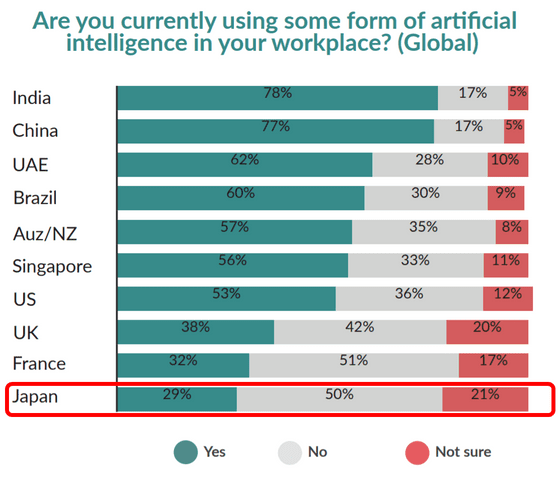
The percentage of those who answered that “AI colleagues are excited to come to work” was India, with 60% at the top, followed by China (56%) and UAE (44%). It can be seen that there is a high possibility that AI has already been introduced in countries that welcome to work with. The percentage of Japanese workers who replied that “AI colleagues are excited to come to work” was 25%, 7th out of 10 countries.
The results show that AI is welcomed not only as a colleague, but also as a boss. In response to the question “Do you trust AI more than human managers?”, 64% of people, well over half, answered “Yes”.
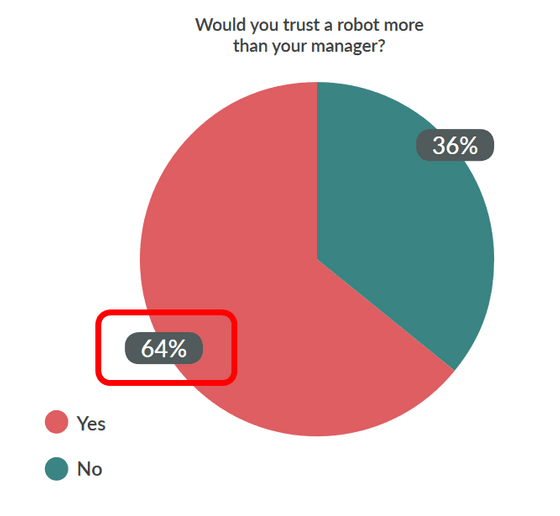
The graph below shows the percentage of people who answered “Trust AI boss” by country. After all India (90%) and China (88%) came to the top, but Japan, which had the lowest AI adoption rate, was 76%, ranking fifth with UAE. Compared with the result that 25% of respondents answered that they were 'excited to AI colleagues', it can be seen that Japanese tend to welcome AI as a boss rather than a colleague. .
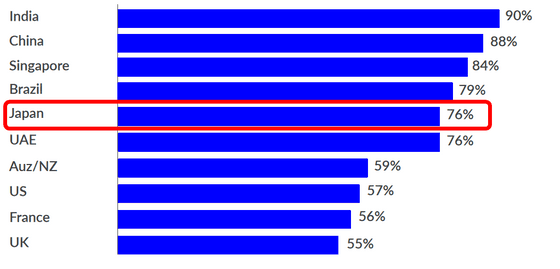
AI bosses are trusted because of their expectations for their ability. In the survey, 82% of respondents answered that “AI bosses are more likely to work than human bosses”.
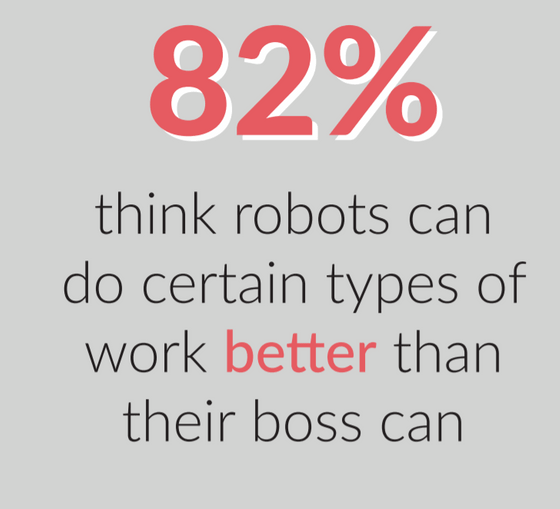
However, AI is not the best at all, and AI and human bosses are thought to have weaknesses. The question “What do you think AI is superior to human superiors?” “Providing unbiased information (36%)” “Schedule management (34%)” “Problem solving (29 %) ”,“ Budget Management (26%) ”,“ Responding to Secret Questions (21%) ”,“ Team Performance Evaluation (20%) ”
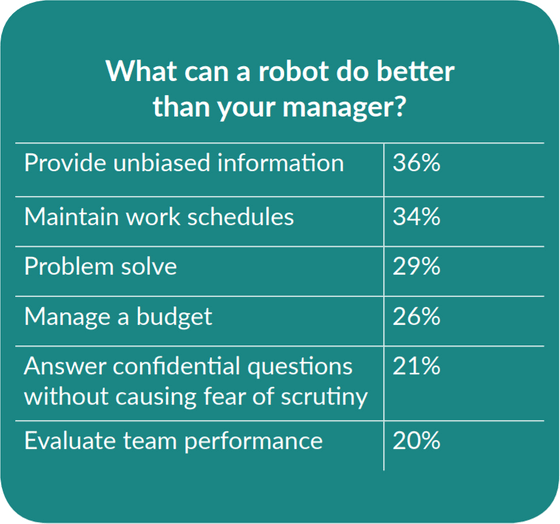
The question “What is superior to a human boss?” Is “Understanding feelings (45%)”, “Teaching (33%)”, “Creating or developing a labor culture ( 29%), “Team performance evaluation (26%),” “Problem solving (25%),” “Supervision and supervision (24%)”. Overall, AI seems to be better at handling numbers and data, and work that doesn't involve personality, while human bosses need work that requires empathy and the ability to see people. It seems to be expected.
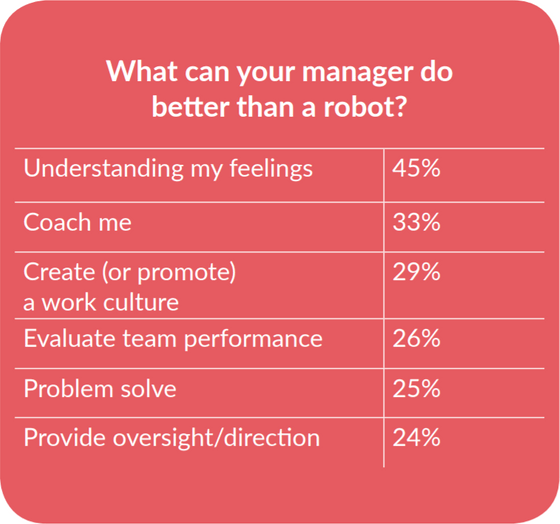
Questions regarding the use of AI installed in the workplace include 'Collecting employee and customer data (31%)', 'Development of training software (28%)', 'Managing responses to customer support (24%)'
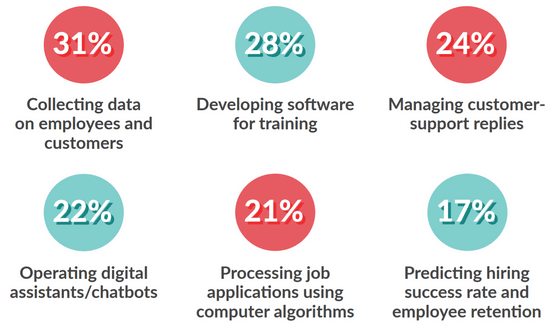
On the other hand, the question “Why can't I use AI?” Is “I want to focus on human relationships (31%)” “Security issues (31%)” “Privacy issues (30%)” “None (21%)” “A fear of being dismissed or dismissing an employee (19%)” “I do n’t know what effect it will have (18%)” Gathered.
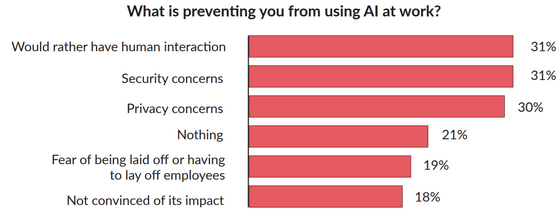
According to Dan Shobel, research director at Future Workplace, “In the past two years, we have found that workers are optimistic about introducing AI into the workplace. The survey results show that AI is redefining not only “the relationship between employees and supervisors” but also “the role of supervisors in AI-led workplaces”.
Related Posts:
in Software, Posted by log1l_ks







